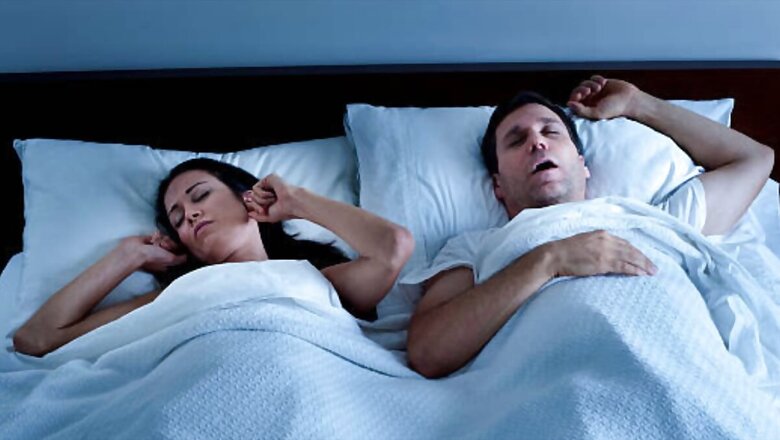
views
Sleep is essential for overall health and well-being, yet many adults struggle to get enough rest each night. While the average adult needs at least seven hours of sleep per night to feel refreshed, research suggests that women may need a bit more than this.
World Sleep Day was observed on March 15 and thus it’s an apt time to delve into the question of why women need more sleep. Research indicates that women may require a bit more sleep than men, and there are several compelling reasons behind this.
Let’s explore the causes behind this and how sleep patterns differ between genders.
Why Do Women Need More Sleep Than Men?
- Insomnia, Anxiety, and DepressionAccording to the Sleep Foundation, Women are 40 per cent more likely to experience insomnia than men, and they are also nearly twice as likely to be diagnosed with anxiety and depression. These conditions are strongly associated with insomnia, making it harder for women to fall or stay asleep regularly.
- Hormonal ChangesHormones play a crucial role in regulating the sleep-wake cycle. Women experience hormonal changes monthly and over their lifetimes, affecting their circadian rhythms and increasing their need for sleep.
- MenstruationAbout one-third of people who menstruate have trouble sleeping due to cramps, headaches, and bloating, leading to higher levels of daytime sleepiness and fatigue.
- PregnancyDuring pregnancy, women may develop restless legs syndrome and often experience depression, sleep apnea, pain, and incontinence, all of which disrupt their sleep. These issues can persist into the postpartum period, adding to daytime sleepiness.
- MenopauseUp to 85 per cent of women experience hot flashes during menopause, according to the Sleep Foundation, which can disrupt their sleep. The risk of developing sleep apnea also increases, leading to less refreshing sleep and daytime tiredness.
Gender-based differences in sleep patterns
- Work and social responsibilitiesWomen tend to dedicate more time to paid and unpaid labour, work, social responsibilities, and family caregiving. They are more likely to wake up to take care of others in the home, which can disrupt their sleep.
- NappingWomen are more likely to nap during the day, adding to their total sleep time. However, naps can make nighttime sleep less restful, impacting overall sleep quality.
- Sleep duration and qualityStudies have shown that women fall asleep faster than men and spend more time in deep sleep, suggesting a greater need for sleep. However, during menopause, women take longer to fall asleep and spend less time in deep sleep than men.
While research indicates that women need more sleep than men, it’s important to note that most adults, regardless of gender, do not get enough sleep each night. The best way to determine if you are getting enough sleep is to assess how you feel when you wake up. If you’re having trouble sleeping, consider making lifestyle changes such as regular exercise, setting routine bedtimes, and improving your sleep environment. If sleep difficulties persist, consult your doctor for further evaluation and treatment options.
















Comments
0 comment